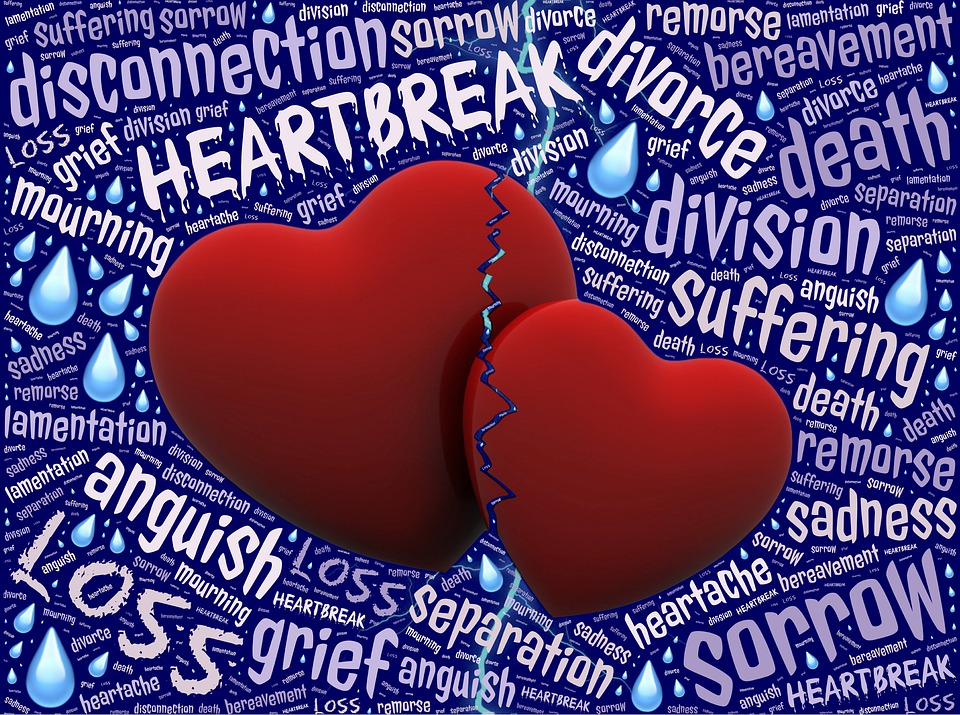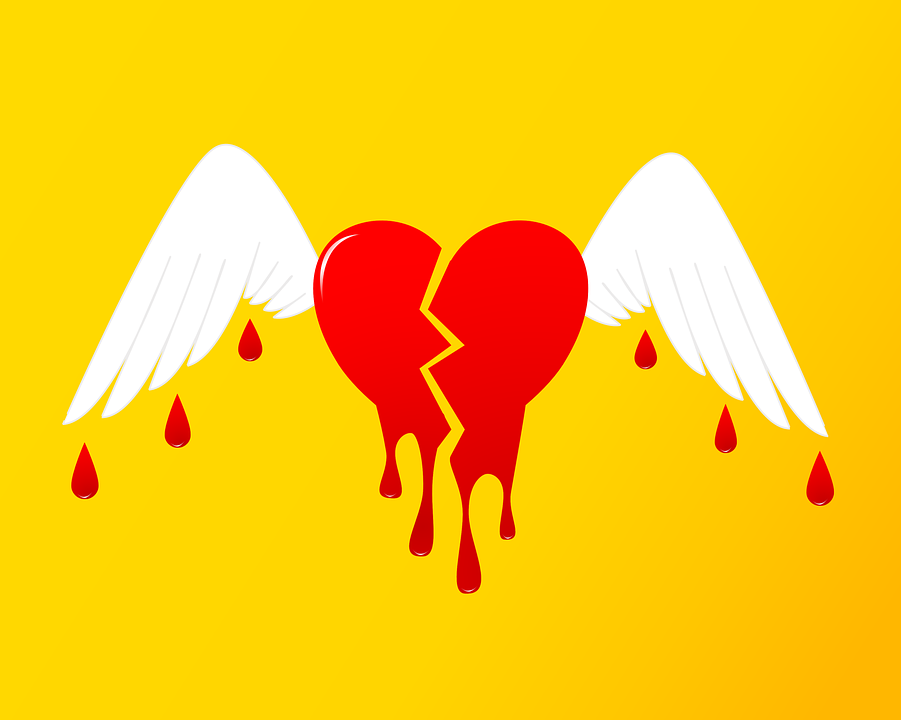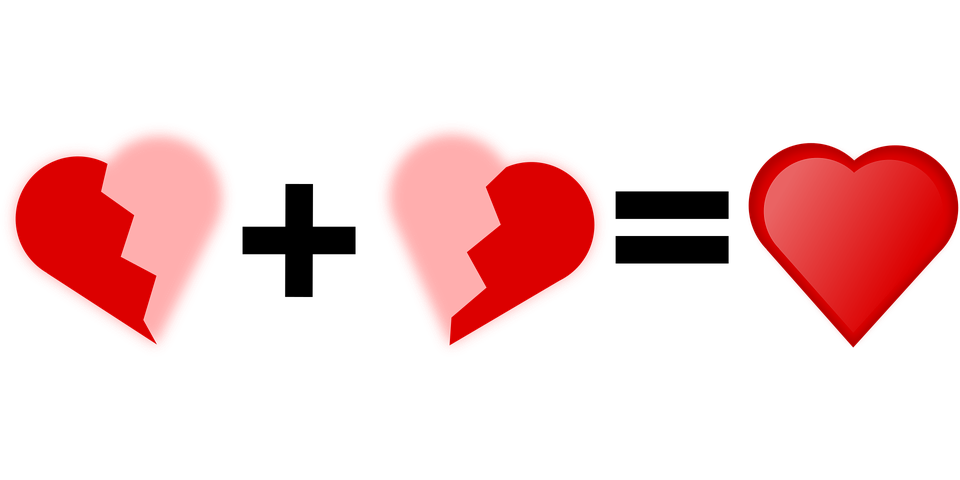Heartbreak
The bitterness in the relationship is hard to comprehend. Heartbreak is an emotional state characterized by intense feelings of sadness, grief, and despair. It can result from the end of a romantic relationship, the loss of a loved one, or any other situation that causes deep emotional pain. It is a term used to describe emotional pain and distress. Moreover, it makes people feel when they experience a significant loss or disappointment.
When someone experiences heartbreak, they may feel as if their heart has been physically broken, and they may experience a range of physical symptoms, such as loss of appetite, difficulty sleeping, and fatigue. The intensity and duration of heartbreak can vary from person to person. Furthermore, it depends on factors such as the nature of the loss, the individual’s coping mechanisms, and their support system.

Relationships – Breakup
What happens when the relationship comes to an end? A breakup is the end of a romantic relationship between two people. It occurs when one or both parties involved in the relationship decide that they no longer want to be together, and they choose to end the relationship. Breakups can be initiated by one person or by mutual agreement.
Breakups can be caused by various factors, including differences in personalities, values, goals, or lifestyles, infidelity, lack of emotional or physical intimacy, or simply growing apart. They can be emotionally challenging and painful for those involved. It can lead to feelings of sadness, anger, confusion, and grief.
Breakups can also have practical implications, such as dividing shared property or financial assets, determining custody of children or pets, or navigating the aftermath of a long-term committed relationship. The process of healing and moving on from a breakup can take time and may require support from friends, family, or a mental health professional.
The similarities between heartbreak and breakup
Heartbreak and breakup are similar in that they both involve the end of a significant relationship and can cause intense emotional pain and distress.
Both heartbreak and breakup can cause feelings of sadness, grief, and despair, as well as physical symptoms such as loss of appetite, difficulty sleeping, and fatigue. They can also lead to questioning one’s self-worth and personal identity and can cause a sense of loss and emptiness.
Additionally, both heartbreak and breakup can require time and effort to heal and recover from. This may involve seeking support from friends, family, or mental health professionals, engaging in self-care practices, and adjusting to a new reality without the presence of the former partner.
While heartbreak can result from various situations, including the loss of a loved one or a non-romantic relationship, a breakup specifically refers to the end of a romantic relationship.

The differences between heartbreak and breakup
Heartbreak and breakup are similar in many ways, but there are some key differences between the two.
Firstly, heartbreak can occur from a variety of situations, such as the loss of a loved one or the breakdown of a non-romantic relationship. In contrast, a breakup specifically refers to the end of a romantic relationship.
Secondly, heartbreak can be experienced by both parties in a relationship, whereas a breakup usually involves only one person ending the relationship. This can result in different experiences and emotions for each person involved.
Thirdly, heartbreak can be a result of circumstances beyond one’s control, such as the death of a loved one or a sudden life change, while a breakup is often the result of a decision made by one or both parties involved in the relationship.
Lastly, the process of healing and recovery can differ between heartbreak and breakup. With heartbreak, there may not be a clear path to closure or resolution, as it may involve processing grief and loss over an extended period. In contrast, a breakup can involve practical considerations such as dividing shared property or financial assets and may require a more focused approach to moving on and building a new life without the former partner.
How to overcome heartbreaks – Relationship
Overcoming heartbreak is a difficult and individual process, and there is no one-size-fits-all approach. However, here are some tips that may help in the healing process:
- Allow to feel and process emotions. It’s important to give yourself permission to grieve and experience the range of emotions that come with heartbreak. This can include sadness, anger, and confusion.
- Seek support from loved ones. Reach out to friends and family who can provide emotional support and a listening ear. Don’t be afraid to ask for help or express your needs.
- Take care of physical health. Exercise, eat well, and get enough sleep. Taking care of our bodies can help to improve our mood and reduce stress.
- Engage in self-care activities. Find ways to take care of and engage in activities that make you happy. This could include hobbies, self-reflection, or relaxation techniques such as meditation or yoga.
- Seek professional help if needed. Consider seeking support from a therapist or counselor who can provide guidance and support in the healing process.
- Focus on personal growth. Use the experience as an opportunity for self-reflection and personal growth. Consider setting new goals or pursuing new interests.
- Practice self-compassion. Be kind and gentle with yourself. Remember that healing takes time, and it’s important to be patient and compassionate with yourself throughout the process.
Relationship – How to overcome break up
Overcoming a breakup can be a challenging and individual process. Here are some tips that may help:
- Allow yourself to grieve. Give yourself permission to feel and process the range of emotions that come with a breakup, such as sadness, anger, and confusion.
- Take care of yourself physically. Exercise, eat well, and get enough sleep. Taking care of your physical health can help to improve your mood and reduce stress.
- Lean on your support system. Reach out to friends and family who can provide emotional support and a listening ear. Don’t be afraid to ask for help or express your needs.
- Engage in self-care activities. Find ways to take care of yourself and engage in activities that make you happy. This could include hobbies, self-reflection, or relaxation techniques such as meditation or yoga.
- Focus on personal growth. Use the experience as an opportunity for self-reflection and personal growth. Consider setting new goals or pursuing new interests.
- Seek professional help if needed. Consider seeking support from a therapist or counselor who can provide guidance and support in the healing process.
- Avoid unhealthy coping mechanisms. Avoid using drugs or alcohol as a way to cope with the pain of a breakup. It’s important to find healthy and productive ways to deal with the emotions that come with the end of a relationship.
Remember that healing takes time, and it’s important to be patient and compassionate with yourself throughout the process. Be kind to yourself and take things one day at a time.

Relationship – Conclusion
In conclusion, heartbreak and breakup are similar in that they both involve the end of a significant relationship and can cause intense emotional pain and distress. They can both require time and effort to heal and recover from and may involve seeking support from friends, family, or mental health professionals.
However, heartbreak can result from various situations, while a breakup specifically refers to the end of a romantic relationship. Heartbreak can also be experienced by both parties involved in a relationship, whereas a breakup usually involves one person ending the relationship. Additionally, the process of healing and recovery can differ between heartbreak and breakup, depending on the circumstances involved.
Ultimately, both heartbreak and breakup are challenging experiences, but with time, support, and self-care, individuals can work through the pain and move toward healing and personal growth.
Vibrant Vaishnavi
